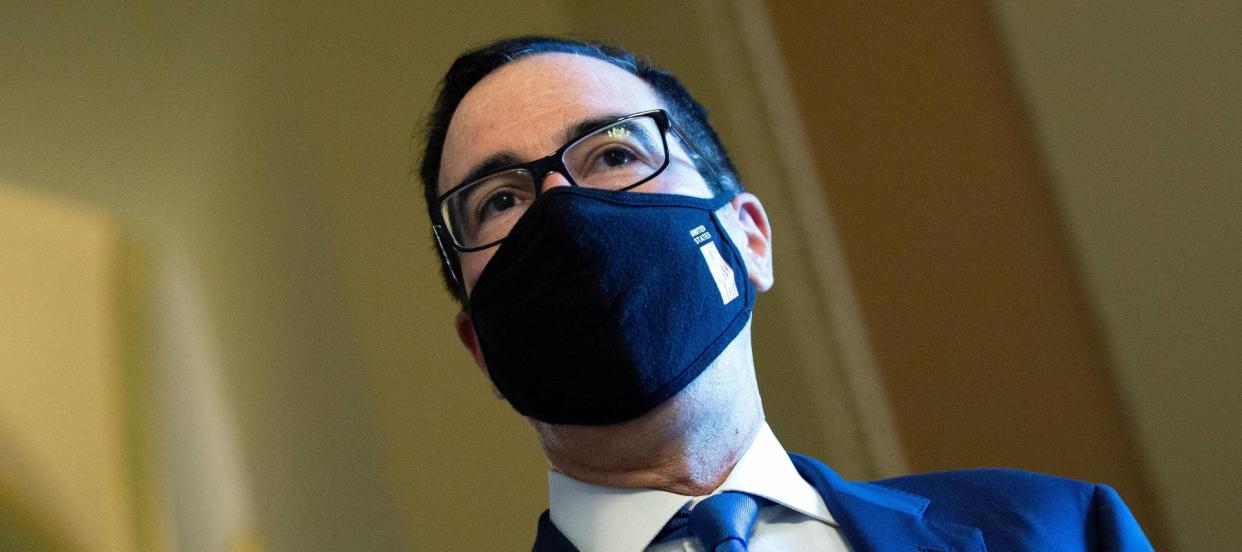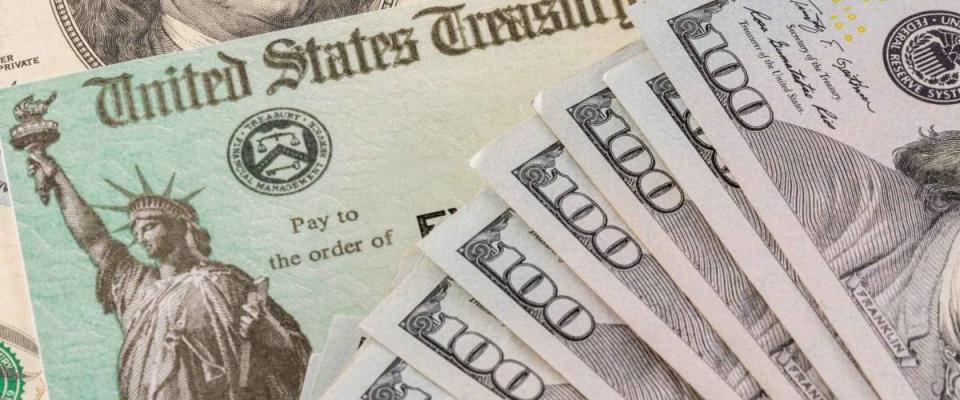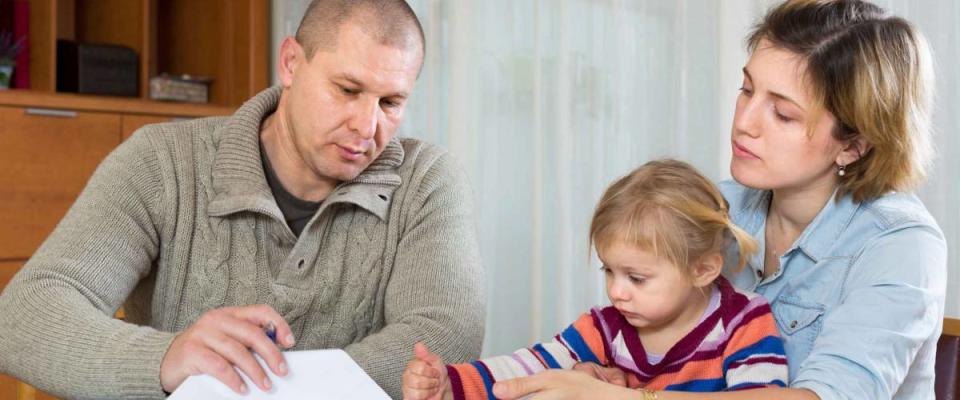Are you really getting another $1,200 stimulus check? Here's what we know

Officials in Washington are inching closer to providing Americans with more financial relief from the coronavirus, and it's sounding more and more likely that a new aid package will include another round of direct payments — you know, those popular "stimulus checks." (Not to mention direct deposits and debit cards.)
How much will you get — and when will you get it? Treasury Secretary Steve Mnuchin (pictured above) just shared some new details as the White House and congressional Republicans prepare to introduce their proposal on Monday.
Here's a look at what's known right now about the next aid measure.
Mnuchin: Stimulus checks will be 'exact same'

Mnuchin indicates the new stimulus checks will be in the same amounts as the first ones.
Following Republican discussions on Capitol Hill on Saturday, Mnuchin told reporters the government is looking to do a repeat of the first stimulus checks, using the very same formula.
The original relief money started going out in April to most U.S. adults, though the $1,200 payments phased out for taxpayers with adjusted gross incomes over $75,000. Single earners making more than $99,000 and married couples with adjusted gross incomes above $198,000 got no stimulus cash at all.
Americans in tough financial spots spent the money on groceries or bills. Others splurged with the cash, or used it for more practical purposes — like to buy affordable life insurance to protect family members in case a breadwinner became fatally ill from COVID-19.
Senate Majority Leader Mitch McConnell had suggested at a news conference in early July that the next stimulus checks might go only to the lowest earners, those making around $40,000 a year or less. Millions of Americans would have been left out.
But Mnuchin indicates there won't be any new restrictions. "We’re talking about the same provision as last time. Our proposal is the exact same provision as last time," he said on Thursday.
A new round of direct assistance would provide welcome relief at a time when high unemployment is forcing many Americans to go into debt to meet basic expenses.
When will you get your money?

It's not clear when the next payments will go out.
Though there's still a lot of work to be done, the Treasury secretary is hopeful the new relief payments can be distributed fairly soon.
“We’ll get the majority of them out in August and those will help people,” Mnuchin said on Saturday.
The White House and the Republicans who control the Senate reached agreement on a new aid package after some compromises. For example, there won't be a payroll tax cut, something that President Donald Trump had wanted.
The Senate must still make a deal with the U.S. House, which is run by Democrats. A House relief bill that passed in mid-May would put up to $1,200 into the pockets of most Americans — including children — to a limit of $6,000 per household.
The first stimulus payments provided households with only $500 for each child under age 17.
Things could move quickly in the next week as time runs out on a part of the original relief law that's kept many out-of-work Americans out of poverty. The federal government is providing an extra $600 in unemployment benefits per week, but that bonus money ends July 31 unless Congress extends it.
The bottom line

If your family is in a financial squeeze, there are many things you can do to save money.
You can probably count on getting another stimulus check this summer. But if you're just barely getting by right now and could seriously use another $1,200 immediately, here are a few tips to help you hold things together right now.
Consolidate your debt. If you’ve got multiple high-interest credit cards, roll those balances into a debt consolidation loan with a lower interest rate. You'll reduce the cost of that debt and have only a single monthly payment to worry about.
Put payments on pause, if you can. During the pandemic, a number of lenders, banks and utility companies have customers put their payments on hold. See if you can get a break from your bills. If your car insurance company won't work with you, it might be time to start shopping around for a better one.
Reduce your monthly spending. You might cut your cable and switch to a less expensive streaming service. Resist the urge to have dinner delivered and prepare your meals at home instead. Use a cash-back card to buy groceries, because it's like saving money every time you shop.
Get a side hustle. Make extra money by picking up a side gig. Or bring in quick cash by signing up for an online rewards program that'll allow you to earn cash and gift cards by completing surveys, watching videos or playing games on your smartphone.

